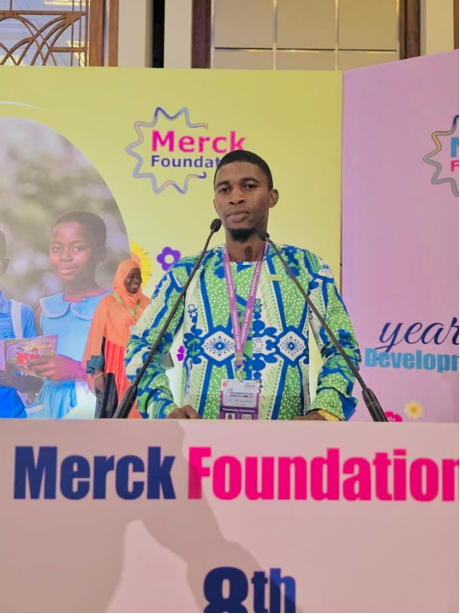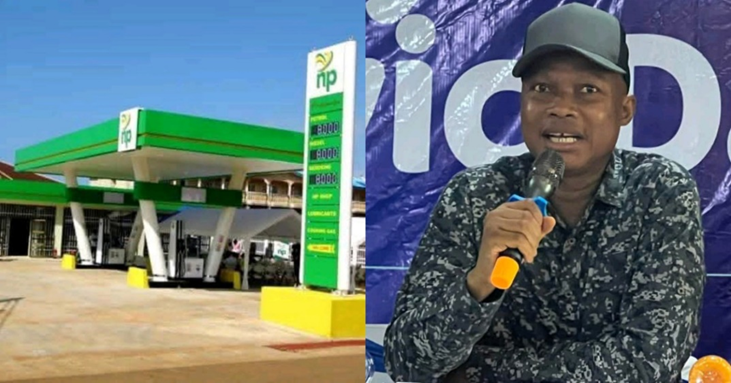By Bampia James Bundu
As the curtains close on the 7th Merck Foundation First Ladies Initiative (MFFLI) Summit in Dubai, Sierra Leone emerges with renewed visibility on the global stage, thanks to the outstanding coverage and representation of award-winning journalist Mackie Muctarr Jalloh. Over two dynamic days, June 18–19, 2025, the summit convened 14 African First Ladies, health ministers, global media professionals, and policy leaders to advance a unified agenda on health equity, women’s empowerment, and patient care.
Mackie M. Jalloh, the only journalist from Sierra Leone officially present, played a central role in documenting the summit’s major outcomes and elevating the voices of those often left unheard in global health diplomacy. His comprehensive reporting and in-depth interviews positioned him not just as a media observer but as a critical voice in the conversation on sustainable healthcare and social transformation.
Under the theme “Empowering Women and Transforming Patient Care through Sustainable Partnerships,” this year’s MFFLI Summit explored complex health issues—ranging from infertility stigma to diabetes, hypertension, cancer treatment, and gender-based inequalities in access to healthcare. It also reviewed the Merck Foundation’s impactful collaborations across Africa, including scholarship programs that have trained over 2,200 doctors in more than 50 medical specialties in underserved areas.
Throughout the summit, Mackie interviewed key stakeholders such as Dr. Rasha Kelej, the dynamic CEO of the Merck Foundation, who emphasized the crucial role of the media in bridging gaps between policy and people. “Media professionals like Mackie are the reason our messages reach the grassroots,” she noted. “It is not only about headlines but about changing mindsets, breaking taboos, and inspiring action.”
Also speaking during the final plenary was the summit’s Chairman, Prof. Dr. Frank Staudt-Stradivarius Avaka, who praised the role of African First Ladies in driving healthcare and educational reforms across their nations. He lauded the journalists present—particularly those from countries with emerging media ecosystems—for being frontline partners in development.
Mackie’s presence at the summit comes on the heels of several major achievements. Earlier this year, he won Second Position in the Merck Foundation Media Recognition Awards 2024 (Print Category – West Africa) for a compelling feature on infertility stigma in Sierra Leone. He was also named Young Creative Journalist of the Year at the National Heroes Award 2025, accolades that set the stage for his selection to attend the Dubai summit.
But beyond the awards, Mackie’s reporting during the summit stood out for its focus on impact storytelling. From one-on-one engagements with First Ladies to capturing the powerful testimonies of health workers and women affected by infertility, his stories humanized statistics and bridged the gap between policymakers and the people they serve.
In his post-summit reflections, Mackie said, “This wasn’t just about covering an international event. It was about lifting the voices of my people, ensuring that the challenges we face in Sierra Leone are understood within a broader global context—and that solutions can be shaped in a way that includes us.”
His reporting—widely circulated on Sierra Leonean platforms and regional networks—has been praised by civil society actors, academics, and fellow journalists as a significant leap for Sierra Leonean media. Many see Mackie’s work as redefining the role of journalists from mere chroniclers of events to catalysts for development and accountability.
The Merck Foundation’s work in Sierra Leone has already laid the groundwork for long-term change, but with journalists like Mackie M. Jalloh helping to shine a light on these efforts, the impact is amplified.
As he returns home from Dubai, Mackie carries more than stories and photographs—he returns with renewed purpose, global experience, and the pride of having represented Sierra Leone at one of the most influential health and development summits in the world.
Indeed, for Sierra Leone and for African journalism, the Dubai summit may have ended—but its message, amplified through Mackie’s lens and pen, will echo far beyond the UAE.



